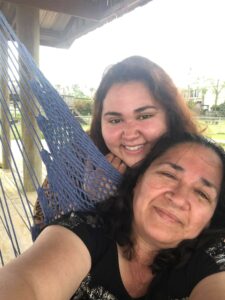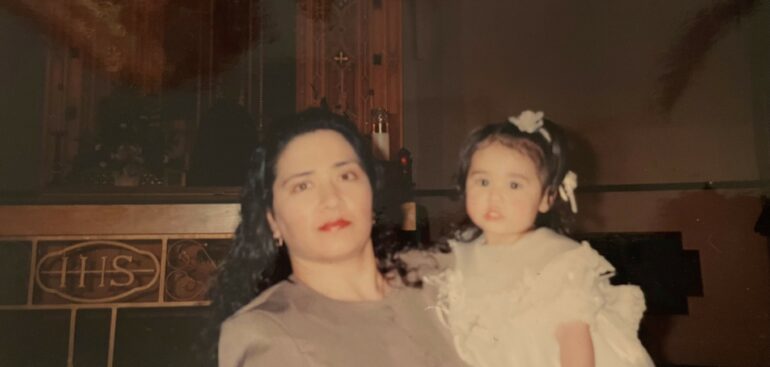By Laura Villarreal
During the month of May, Esperanza United honors mothers and maternal figures who help keep their families strong. We know from our work how much energy Latin@ moms and mother figures put towards supporting their families. Some survivors do this all while they are experiencing abuse, which, when you think about it, is incredible in a grim reality. Community, familia, and children often bring strength to many Latin@ survivors – for many being their reason to persist forward.
Mothers and maternal figures work hard and often experience stress that affects their health and well-being. Latin@ survivors need culturally-responsive support for a number of reasons, from childbirth to maintaining their bodily autonomy and their health and wellness in all its forms – physically, mentally, emotionally, socially, and spiritually. A lack of Spanish speaking staff, and culturally-responsive health services means Latin@ survivors have less resources available to them. This negatively impacts their health, the health of their families, and the health of communities at large.
For many, our maternal figures are the first line of defense from inequitable healthcare systems and our biggest advocates. For example, my mother faced challenges with language access and culturally responsive care when she was pregnant with me. It was a difficult pregnancy as her first provider did not offer language access services to ensure she had informed decision making and consent while receiving care. My mom recalls that this provider held biases and had used fear tactics towards her and my father which created stress and removed autonomy from my mother during a moment of crisis – a time in which she needed support from her provider but did not receive it. My mother is one of many Latin@ maternal figures in the United States that has this experience with their health providers.
After this negative experience, my mom refused to see this provider again, and leaned towards her community for support. Through her community, she was connected with a medical provider who listened to her concerns, aided her in creating a plan for the remainder of her pregnancy, and provided culturally responsive care and language access. Today, I am here as a maternal and child health public health professional, because of my mami, my family, and because of the community that supported my mother during her pregnancy with me. It was through her advocacy which allows me to be here with her today. My mami continues to teach me that advocacy, for yourself and others, is one of the highest forms of love and leadership.


Healthcare providers and community providers are also advocates and they can prevent negative healthcare experiences and increase positive health outcomes for Latin@ survivors and their communities. In this Medical Provider toolkit and Community Provider toolkit, medical and community providers learn the impact they have on Latin@ survivors health and actionable steps they can take to prevent violence by adapting cultural responsiveness and trauma-informed care in their practices. We encourage medical providers and community providers to create safety for survivors, acknowledge and work through their biases, and recognize the realities of Latin@ maternal figures and survivors.
